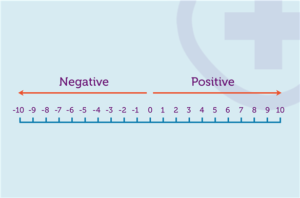The Bible declares the worth and
dignity of every human being by declaring that humans have been created in the
image of God (see Genesis 1:27). We see in this that human beings are
categorically different than any other part of God’s good creation, and we can
see this difference in at least two significant ways in Genesis, chapter 1.
First, for every other created
thing, it starts like this. “And God said, ‘Let there be . . .’ ” We can
see that in verses 3, 6, 9, 11, 20, 24, of Genesis, chapter 1. But when it
comes the creation of human beings, God doesn’t say, “Let there be,” rather he
says, “Let us make.”
This might seem like a small
thing, but it’s actually quite important. Do we hear the personal nature of “let
us make” as opposed to “let there be”? With the rest of creation, God simply
spoke it into being—he spoke it into existence. With human beings, however, he
crafted them. He made them. He fashioned them.
If we were to fast forward to
Genesis, chapter 2, we’d see that God formed mankind from the dust of the earth,
and God actually breathed the breath of life into his nostrils (2:7). This is
categorically different than anything God did with the rest of his creation.
A second difference between
human beings and the rest of creation is found here. All of the other living
creatures in Genesis 1 were made “according to their kinds.” We see that twice
in verse 21, twice again in verse 24, and three times in verse 25—“according to
their kinds.”
With the creation of human beings,
however, it wasn’t “according to their kinds.” Rather, when God created human
beings, it was “in our image.”
So, if we were study a dog, we would
learn something about “dog-ness”—or what it means to be a dog. And if we were study
an elephant, we learn something about “elephant-ness”—or what it means to be an
elephant. And if we were study an ant, we learn something about “ant-ness”—or
what it means to be an ant.
But when we study human beings,
not only do we learn something about what it means to be a human—or
“human-ness”—but we also learn something remarkable about what God is
like—because we’ve been created in his image, after his likeness.
N.B. We shouldn’t don’t read too
much into that remark. We don’t believe that one day, we’ll be gods. “Godhood”
isn’t in our future.
But, we’ve been created in God’s
image, and that is packed full of meaning for us.
That word—“image”—it appears
three times in Genesis 1:26–27.
- “Let us make man in our image”
- “So God created man in his own image”
- “In the image of God he created him.”
And then, for good measure, one
time at the beginning of verse 26, God also says, “after our likeness.”
So, what does it mean to be
created in the image and likeness of God? Theologians have wrestled with that
question for centuries. One might think that the answer is simple, but it’s
not.
First, let’s make it clear what the
image of God (or imago Dei) doesn’t mean. Whenever we hear the word
image, we quite naturally think of a picture or a likeness. We think of
physical qualities.
On my desk in my office, I have
a picture of my wife and a picture of my children. One could say that those
pictures are images of my family, and there wouldn’t be anything wrong with
saying it that way.
But when we talk about the image
of God, we’re not talking about a picture or a likeness. When we look in a
mirror, our physical appearance isn’t the image of God. That’s not what it
means to be created in the image of God. The Bible teaches us that God himself
doesn’t have a body like we do. God is spirit (John 4:24). So, our physical
bodies aren’t the image of God.
What, then, does the image of
God mean? The image of God in us relates to various capacities that we have. Here
are four of those capacities.
First, we’ve been created with a
moral capacity. Our moral capacity is part of what it means to be created in
the image of God. We are ultimately accountable to God for our moral choices.
No one, for example, chastises a
lion when that lion attacks and kills another lion who was encroaching on his
territory. No one says that the lion has committed an “immoral” act. That would
be nonsense. Lions weren’t created to act morally or immorally. Lions do what
lions do. It’s neither moral or immoral.
But suppose a businessman
started canvasing the neighborhood where his competitor lived. If the
competitor decided to shoot him because he was “hunting in ‘my territory’,” we
would all consider that an immoral act. The competitor would go to jail, and
rightly so. Human beings are moral creatures who’ve been created in the image
of a moral lawgiver.
We even acknowledge that there
is such a thing as a moral lawgiver. And when we live according to God’s moral
standards, our likeness to God is reflected by our actions.
Second, we’ve been created with
a spiritual capacity. Our spiritual capacity is part of what it means to be
created in the image of God. No other part of God’s creation has a spiritual
capacity.
The lion doesn’t stop and offer
thanks to God before he eats the antelope! But we’ve been created to know that
there’s something more to our existence. Romans 1 tells us that God has made it
plain to everyone that he exists.
Romans 1:19
19 For what can be known about God is plain to them,
because God has shown it to them.
Why we are here? Why is there
something rather than nothing? If we were to believe in Darwinian evolution,
we’d have to come to the conclusion that we’re all just a cosmic accident. If we
believe in Darwinian evolution, human beings have no more dignity than
houseflies.
But, because we’ve been created
in God’s image, we have a spiritual capacity. Isaiah 43:7 tells us why we are
here. We are here because God created us for his glory. We bring him glory by
worshipping him.
Third, we’ve been created with a
mental or rational capacity. Our mental or rational capacity is part of what it
means to be created in the image of God.
The word of God commands us to
love God with all our hearts, all our strength, all our souls, AND all our
minds (Matthew 22:36–40)!
No other part of creation can do
this. Dogs and cats did not get up this morning thinking grandiose thoughts of
God. They get up in the morning and all they want was fresh water, fresh food,
and some attention! That’s all that they want.
Human beings, however, have been
created with the capacity to think rational thoughts.
Fourth, we’ve been created with
a relational capacity, and our relational capacity is part of what it means to
be created in the image of God.
Notice what the text says in
verse 26. It says, God—singular—said, “Let US make man in OUR image, after OUR
likeness”—plural pronouns.
What are we to make of this? Are
we to assume that Moses—who wrote the book of Genesis—didn’t know his grammar
rules? That’s NOT what’s happening. This grammar is quite intentional.
This is an early hint about who
God is. This is an early hint about the doctrine of the Trinity—one God,
singular, in three persons, plural.
How does the Trinity relate to
relationships? Since God is Trinity and the Trinity is eternal, that means that
God has always been in relationship with himself.
There’s never been a time when
God the Father wasn’t in a relationship with God the Son. And there’s never
been a time when God the Son wasn’t in relationship with God the Holy Spirit.
God is and always has been in a relationship with himself.
And so, since we’re created in
his image, it’s reasonable to suggest that he’s given us this relational
capacity as well.
The very first thing that isn’t
good in all of creation is that man was alone. It’s not good for man to be
alone. So, God created woman to come alongside man. God created woman to help
complete the man.
We’ve been created for
relationship. We’re not meant to be hermits. Some people have hermit
tendencies, but it’s not good to be alone.
We’ve also been created to be in
relationship with God. In Genesis 3, it’s God who comes looking for Adam and
Eve in the garden. God wants a relationship with his creatures.
One final thought about these
various imago Dei capacities. The image of God is lasting and enduring
for all time to all people. Even after sin comes into the world and corrupts
the world, human beings are still referred to as God’s image bearers. Sin
doesn’t nullify the image of God.
Nor does a diminished capacity nullify
the image of God in a person. Suppose, for example, someone’s suffering from
advanced Alzheimer’s disease. She doesn’t remember her own name, much less her
husband and children. One could rightfully argue that her relational capacity
has been severally affected.
But is that woman still someone
who’s been created in the image of God? Does she still possess the image of
God? Answer. YES, she does. She is still a woman created in the image of God
and she still has dignity and worth.


